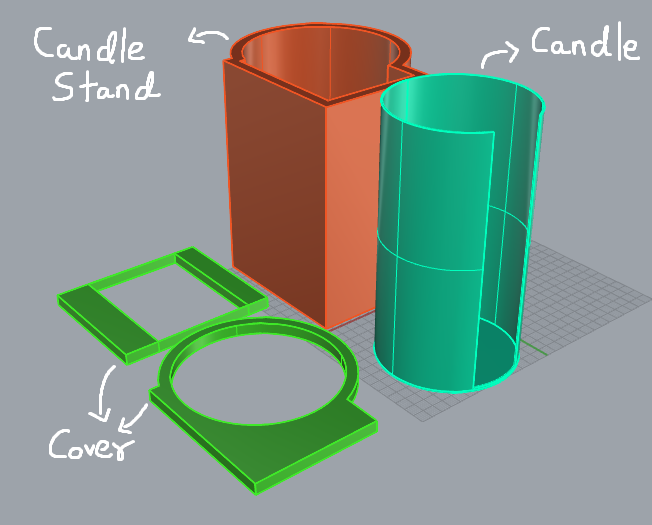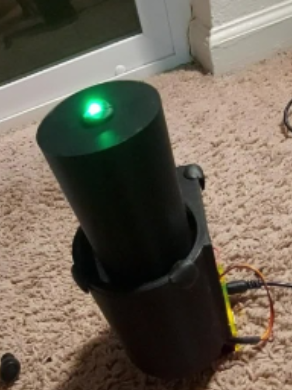A quiet timer for loud results
Pomodoro timer
AREA OF TIME
Slow Burn Productivity
I work best using the Pomodoro technique – short sprints of focused work, followed by quick breaks. But every time I went to YouTube to start a timer, I’d get distracted. So I built something of my own: a physical Pomodoro timer that feels like time passing.
The concept? A candle that melts while I work – and rises again during breaks. It’s calm, focused, and just a little dramatic – exactly how I like my productivity tools.
HOW IT WORKS
The timer is powered by an Arduino Uno and a 180° servo motor, using a rack-and-pinion setup to move the “candle” up and down inside a 3D-printed enclosure. Here’s the full cycle:
- Work Phase (25 mins)
- The candle slowly “melts” down, LED turned on.
- Break Phase (4.5 mins)
- The candle rises back up, LED pulses – a signal to get ready for the next round.
- Reset (30 secs)
- The candle rises back up, LED pulses – a signal to get ready for the next round.
DESIGN DETAILS
To make the movement visually meaningful, I chose the metaphor of a candle – representing both the passage of time and mental focus burning away. I used clay for small adjustments and 3D printed an enclosure to house the components.
The movement is subtle and smooth, avoiding loud motor actions, so it can sit quietly on a desk while still keeping me aware of time.


FINAL OUTPUT
Here’s the Pomodoro Candle Timer in action – slow, quiet, and oddly satisfying. The candle lowers itself during work, takes a break with you, and rises again to start fresh. No screens, no distractions – just focus, motion, and a little glow.
CONCLUSION & FUTURE SCOPE
Building this timer taught me more than just servo angles and circuit logic – it taught me how to bring an idea to life in a way that feels personal and purposeful. I received some thoughtful feedback along the way: painting the enclosure to better resemble a real candle could enhance the visual metaphor, reducing wire clutter would improve both aesthetics and usability, and adding features like a digital time display or a gentle “ding” sound at the end of breaks could make the experience more intuitive. One detail I’m particularly proud of is the clay – a small hack that made big fixes easier during testing. While the build could definitely be improved with polish and iteration, this project reminded me that functional design can also be poetic – and that sometimes, the best solutions come from solving your own pet peeves.
